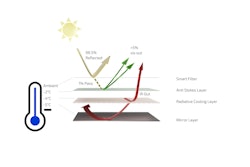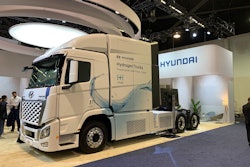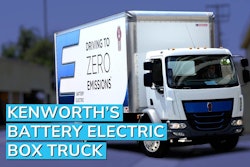
In the race to combat the effects of climate change, there’s a huge push to transition away from gas- and diesel-powered vehicles. The transportation industry accounts for 29% of greenhouse gas emissions and is the largest sector generating these emissions. Certainly, there’s growing urgency to address this and prioritize sustainability, but the Environmental Protection Agency's (EPA) greenhouse gas emissions mandates have sparked debates and raised concerns among small carriers.
The federal government, automotive industry and EV charging companies have poured billions of dollars into incentivizing light-duty vehicle drivers to make the leap to EVs, but electrified long-haul trucking is much more complicated. Beyond the expense of paying for these vehicles, which cost hundreds of thousands of dollars, where’s the charging infrastructure to accommodate a 40-ton fully loaded tractor-trailer on a cross-country trip?
While it is important to acknowledge the need to reduce emissions, it is crucial to consider the practical challenges small carriers face during this transition.
Limited charging infrastructure and range
One of the major challenges small carriers face is the time-consuming nature of charging electric trucks compared to refueling diesel-powered ones. The charging process is significantly longer – it can take up to 90 minutes to charge an electric truck from 0 to 80% compared to about five minutes to fill a tank – directly impacting our operations' efficiency and productivity.
Charging infrastructure for passenger vehicles still lags where it needs to be to accommodate an influx of EVs and there are more than 130,000 throughout the country. Electric truck charging stations may as well be non-existent by comparison. Determining where these charging stations will be built is yet another challenge. They need to be easily accessible to routes to not further detract from shipping and delivery times. Truckers already fight for limited parking spaces – imagine how trying to find a spot to charge will throw another wrench into the supply chain.
Electric trucks’ limited driving range is another concern, as it restricts their ability to cover long distances without frequent recharging. These limitations hinder our ability to smoothly transition to electric trucks.
Economic impacts and job security
One of the most concerning aspects of a mandated electrification transition is the lack of clarity regarding the fate of diesel trucks that will be taken off the roads. Without incentives, a new electric truck costs between $300,000 to $500,000. Most trucking companies operating in the U.S. are small carriers with six or fewer trucks. They cannot afford the expense to purchase these vehicles. Is the government ready to provide financial assistance to facilitate the transition? If not, it could potentially lead to job losses or burden small carriers with significant debt.
Newer-model diesel trucks have lower emissions output and could be an interim compromise, but they also cost a pretty penny. It is unreasonable to expect small companies like ours to bear the financial burden of a transition without adequate support. Such an approach not only jeopardizes our employees’ livelihoods but also hampers our industry’s overall growth.
The need for technological readiness
For the market to transition smoothly, it is crucial to have robust and reliable technology that can genuinely replace diesel trucks without compromising efficiency and effectiveness. Rushing into an incomplete transition without the necessary technological advancements will inevitably slow down our operations and hinder market growth. We must ensure that the technology is ready and able to match or surpass the performance of diesel trucks before mandating such a shift.
It’s disheartening that the government is focusing on enforcing a transition to electric trucks instead of addressing the immediate issues plaguing our supply chain. To keep our economy moving, we should implement measures to resolve existing challenges instead of diverting resources toward a change that will further strain our supply chain.











